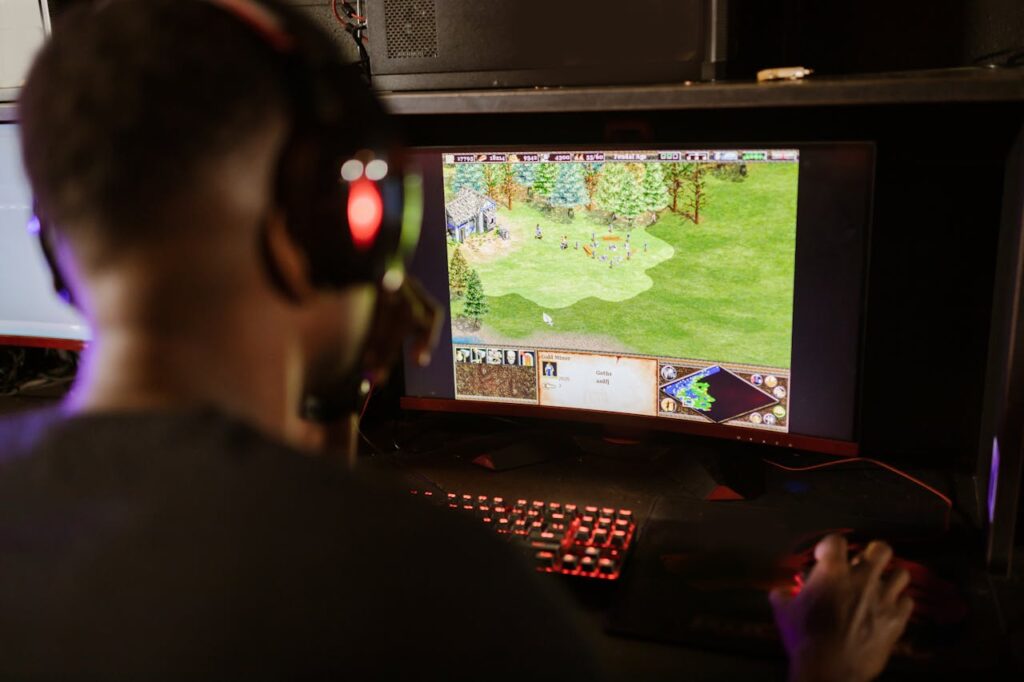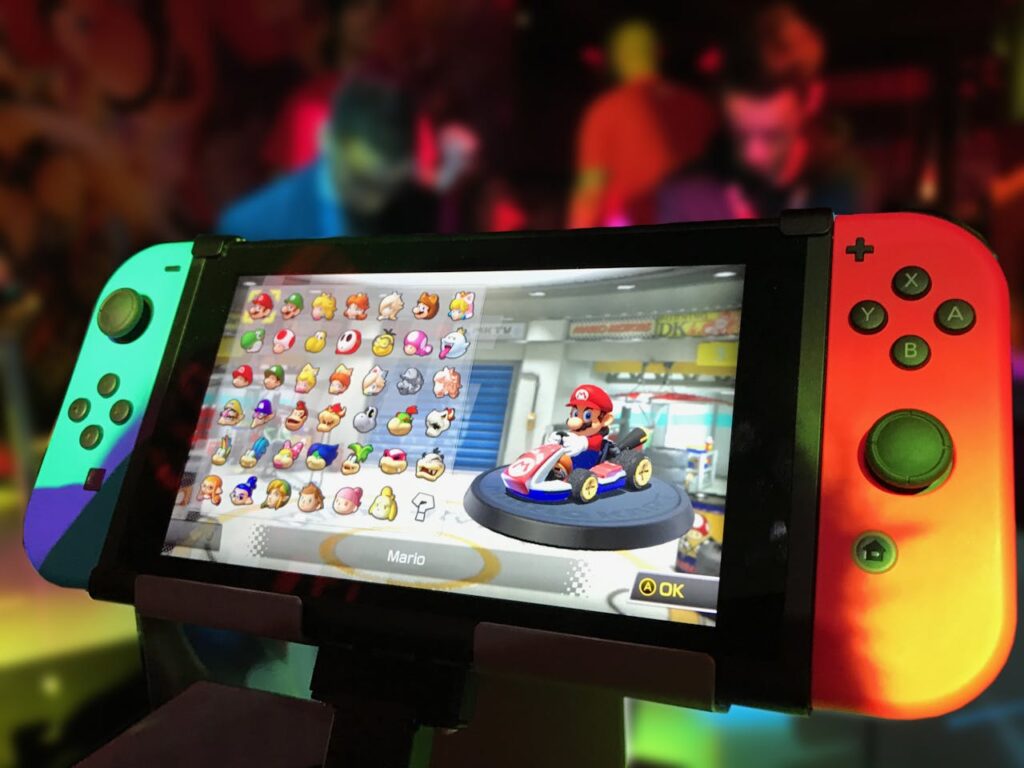Key takeaways
- There are diverse game design jobs and various career paths.
- Careers in the game design industry come with different responsibilities, salaries, and educational requirements.
- The 5 most popular game designer job roles include level designer, narrative designer, project manager, and more.
- Bachelor’s degrees, professional certificates, and real-world experience can help launch your career in game design.
- Some of the best colleges for game design include the University of Southern California, DigiPen Institute of Technology, and Rochester Institute of Technology.
Recently, we have seen an upward trend in the video game design jobs market. Undoubtedly, it is one of the latest, most intriguing fields of work, and only those with true passion can pursue a career in the world of game art and design. In addition to this, careers in game design are more accessible and diverse than ever. Moreover, young and qualified game designers with formal education in the field can now bring virtual worlds to life, using creativity and technical skills.
Whether your interests lie in visual art, coding, storytelling, or project management, the field of game design has a place for you. This article explores some of the most common game designer jobs, what they entail, and the educational paths that can help you get there.
By the end of the article, you will have a fair idea of what you can expect from the game design field. Moreover, understanding your career goals can also help you choose the best college for a bachelors in game design and development.
5 Most common game designer jobs you can explore

Every field has a number of career paths and jobs. However, you will be amazed at the variety of career paths available when it comes to finding game designer jobs. Not only the jobs, but the salary ranges also vary significantly.
So, the following list of common game designer jobs will allow you to define your career goals and plan your college education accordingly.
Game designer
Game designers develop core game concepts, including gameplay mechanics, storylines, and character roles. They collaborate with artists, programmers, and other designers to bring the vision of the game to life. Moreover, this career path is the most straightforward outcome of getting a degree for video game design.
Furthermore, the salary range can vary depending on your job level and your expertise. Different companies also tend to have varying salary brackets for this job. However, the typical salary range for game designer jobs is $50,000–$100,000 per year. However, this can vary depending on the company size.
For this job, opt for a bachelor’s degree in game design, computer science, or a related field.
Level designer
Level designers create the levels, or “maps,” within a game. This is for ensuring that the game are fun, challenging, and cohesive with the game’s story and style. Moreover, they are responsible for mapping out enemy placements, puzzles, and player interactions within each level.
Furthermore, the salary range for level designers may vary between $45,000 and $90,000 annually. Usually, this type of job role is available for entry-level and mid-senior level candidates.
Lastly, you can opt for a bachelor’s degree in game design, interactive media, or digital arts. Additionally, courses or experience in 3D modeling and level editing software are also helpful for building a career in this field.
Narrative designer/planner
Moreover, a bachelor degree in game design can also lead to a job role as a narrative designer or planner. Most of the games today are narrative-intensive, making this expertise really in demand. Moreover, narrative designers develop the storylines, characters, and dialogues, shaping the game’s world and emotional impact on players. They work closely with writers and designers to integrate the narrative with gameplay. Therefore, this is an exciting role and similar to video game designer job descriptions.
Furthermore, a typical salary range for this job may be anywhere between $50,000 and $95,000 per year. However, keep in mind that the salary range varies based on level of experience and company size.
Lastly, a bachelor’s degree in game design, creative writing, or screenwriting, as well as a media-related degree can be good for this job. A portfolio with examples of storytelling in games or other media is typically required, so keep that ready.
User Interface (UI) Designer
One of the most popular game design jobs is related to UI/UX. Firstly, UI is an integral part of gameplay, making this a high-paying and prestigious job. Moreover, UI designers develop the game’s menus, icons, and other interactive elements.
Since this is a high-paying job role, expect some stricter qualification requirements and expertise. Typically, bigger-sized companies may pay an average salary of $92,454.
Project Manager
Finally, the last game design job on our list is the game project manager. Even though this is an advanced-level degree and may be available to you after some years of experience, it still has scope for entry-level candidates too. Firstly, game project managers oversee the development process, ensuring that the team stays on track and meets deadlines. They coordinate between departments, manage resources, and resolve any issues that may arise.
Moreover, their game expertise may not be as vital as their leadership and management skills. Therefore, a broad variety of degrees, particularly a master’s degree in project management, may be a good choice for this type of job role.
Lastly, the salary range for this job may be high, and can vary anywhere between $80,000 to $150,000. Soft skills and leadership certifications may be required.
How to become a game designer?

A career in game design typically begins with a combination of formal education, hands-on experience, and a strong portfolio. So, for those interested, here is an overview of how to get started:
Getting a bachelor’s degree for game design jobs
Most employers prefer candidates with a bachelor’s degree in game design, computer science, digital arts, or a related field. Popular degree options include:
- Bachelor of Arts (BA) in Game Design: Focuses on the creative aspects, including storytelling, character design, and level creation.
- Bachelor of Science (BS) in Game Development: Covers the technical side, including programming, software development, and game mechanics.
- Bachelor of Fine Arts (BFA) in Game Art and Animation: Ideal for aspiring game artists, focusing on visual design, 3D modeling, and character animation.
Professional certificates
For those looking to build specific skills, professional certificates in game design, 3D modeling, or coding can be valuable additions to your qualifications. These are especially helpful if you are looking to specialize in a certain area, such as Unity game development or narrative design. Moreover, these certificates are typically found online and are rather affordable as well. So, enrolling and compelling these certifications should not be difficult. Lastly, platforms like Coursera, edX, and LinkedIn Learning offer courses that can boost your credentials.
Additional tips to launch your game design career
In addition to a formal education and professional certifications, you can also explore a broader variety of game designers jobs by taking some other steps. These may include the following:
- Build a portfolio and include projects that demonstrate your skills in game design, coding, or art.
- Highlight any work you have done on games and relevant projects. These can be with personal projects, freelance work, or school assignments.
- Participate in Game Jams, which are basically competitions where designers create a game from scratch within a limited time.
- Get an internship to fulfill graduation requirements and also get hands-on experience.
- Internships with game studios or tech companies can provide invaluable experience and connections in the industry.
- Don’t forget to always keep expanding your professional network. Join game design communities online or attend industry events to meet professionals and learn about job openings. Moreover, you can also connect with college alumni and faculty members.
Explore colleges to get a game design degree
Even with so many great options in game design jobs and careers, it is vital to find the ideal education to qualify for well-paying jobs. Therefore, do not shy away from doing thorough research and comparison of what various types of colleges are offering in terms of a degree in game design. So, if you are considering a formal education in game design, here are some of the best programs in the field.
University of Southern California (USC)
- Acceptance Rate:: 16%
- Graduation Rate: 92%
USC is a top college for a bachelor degree for game design. Firstly, it offers a top-ranked Bachelor of Arts in Interactive Media and Game Design program through its School of Cinematic Arts. Secondly, the college and its program is known for its industry connections and access to cutting-edge facilities.
DigiPen Institute of Technology
- Acceptance Rate: 36%
- Graduation Rate: 56%
DigiPen is renowned for its focus on game design and development. Its Bachelor of Science in Computer Science and Game Design combines computer science with practical game design, preparing students for both programming and design roles. Therefore, the degree is a blend of technical as well as creative learning objectives, allowing you to explore a diverse career path.
Rochester Institute of Technology (RIT)
- Acceptance Rate: 66%
- Graduation Rate: 66%
RIT offers a Bachelor of Science in Game Design and Development that covers programming, design, and production. In addition, you will find the most advanced and equipped labs that give you access to industry-grade tools and learning opportunities. These facilities allow you to excel in your career from an early starting point.
Savannah College of Art and Design (SCAD)
- Acceptance Rate: 78%
- Graduation Rate: 68%
SCAD’s Bachelor of Fine Arts in Interactive Design and Game Development covers game art, animation, and character design. So, this is the ideal program for students who are keen about creativity and artistic expression in game design.
New York University (NYU) – Tisch School of the Arts
- Acceptance Rate 21%
- Graduation Rate 87%
NYU’s Bachelor of Fine Arts in Game Design program emphasizes game design’s technical and narrative aspects. Moreover, it offers several facilities to students, such as the access to Game Center, where students are exposed to collaborative and hands-on work experience.
Give a boost to your game designer career today!
In summary, numerous game designer jobs are rather fulfilling and rewarding for various reasons. The game design industry is at an all-time high, and there is a surging demand for experts. However, you will need to equip yourself with crucial aspects, such as skills, competencies, and theoretical knowledge.
Furthermore, the game design degree offers numerous career paths, each with its own unique blend of creativity and technical skills. So, by choosing the right degree, gaining practical experience, and building a strong portfolio, you can start your journey in this exciting industry.
Lastly, the game designer salary ranges can vary significantly. Ultimately, it all depends on your professional experience and qualifications. Therefore, it is vital to always upskill and learn new things, as the industry is evolving quickly due to changes in technology.
